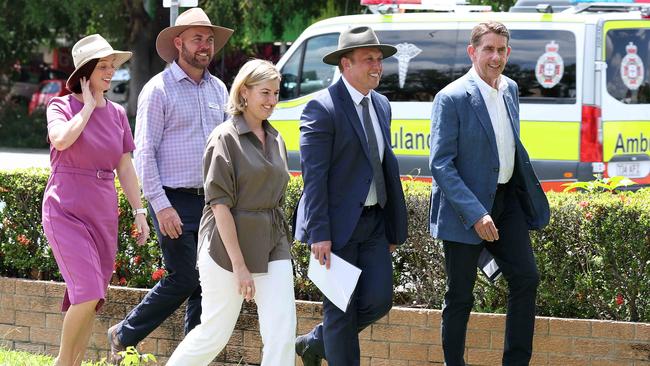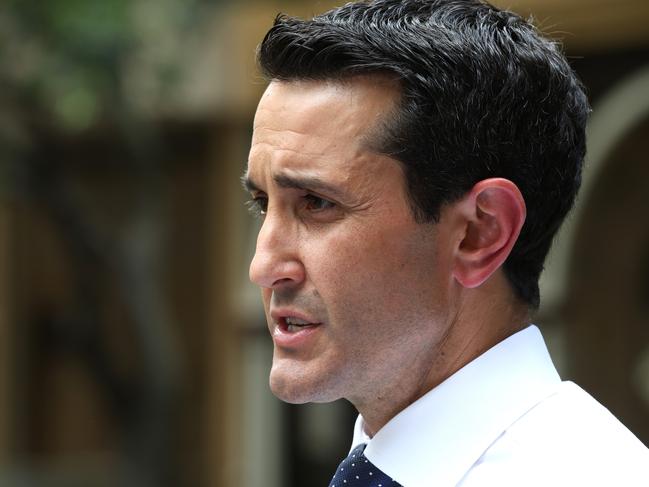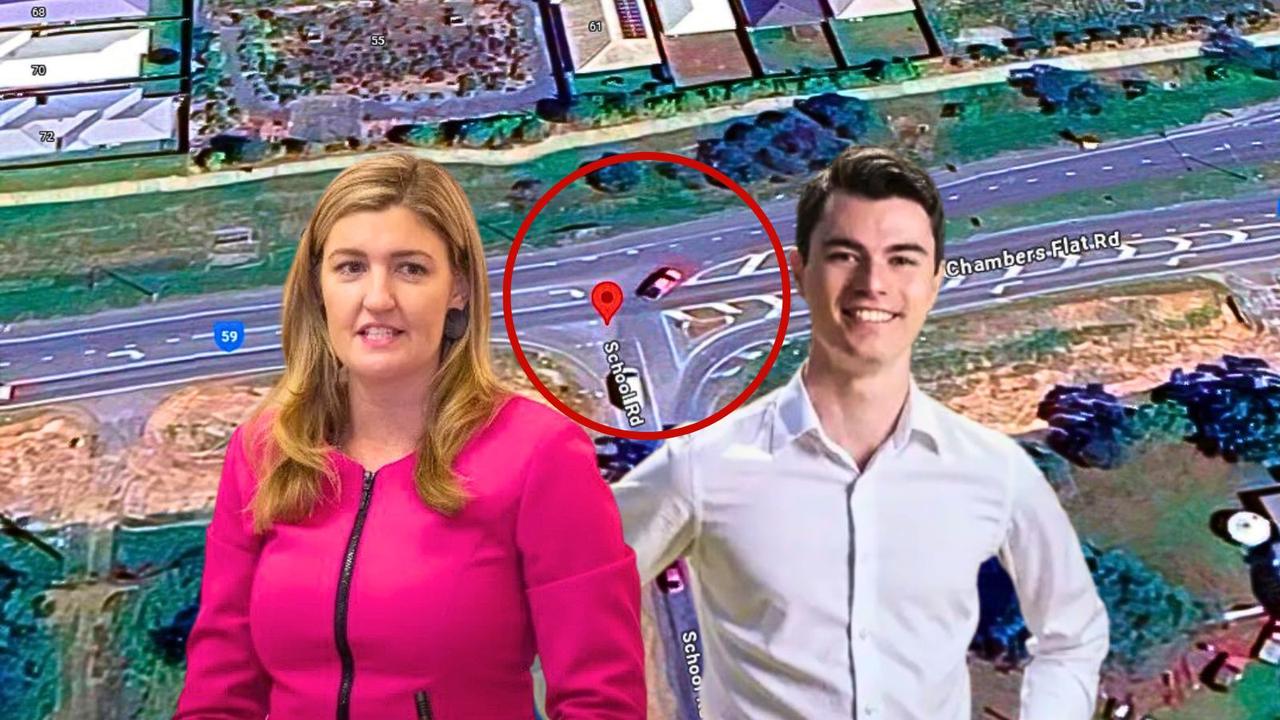Experts caution: Buy votes now, we’ll pay later
Labor’s $9.1bn cost-of-living pledges will only fuel inflation and burden future generations, economists warn.

QLD Votes
Don't miss out on the headlines from QLD Votes. Followed categories will be added to My News.
Labor’s $9.1bn cost-of-living pledges will only fuel inflation and burden future generations, economists warn.
Premier Steven Miles is betting his campaign on a suite of cost-of-living relief measures, including $1000 energy rebates, 50c public transport fares, free school lunches and state-owned GPs, petrol stations and an energy retailer.
Prominent economists are raising the alarm about the potential long-term fiscal repercussions due to the policies being paid for with borrowings.
Treasurer Cameron Dick acknowledged that all election promises would push Queensland into an operating deficit for at least the next two years, with future taxpayers to pay for current short-term relief.
Leading economist Saul Eslake said the relief measures were a waste of public money that could inadvertently increase demand, countering the Reserve Bank of Australia’s efforts to lower interest rates.
“It’s prolonging the problem and it’s done with borrowed money,” he said.
He urged the government to take a more targeted approach by offering assistance to low-income residents through specific rebates on essentials like electricity and council rates.
But Opposition Leader David Crisafulli may also lack the mandate to steer Queensland’s finances towards sustainability, Mr Eslake said, due to the LNP’s commitment to adopt the current budget.
The budget forecasts surpluses of $0.9bn by 2026-27, increasing to $2bn in 2027-28.
“But cash deficits in 2027-28 are still $10.5bn,” Mr Eslake said. “You cannot start paying down debt until you are running a cash surplus and the way things are going that doesn’t look likely until 2029-30.”
Mr Miles visited Rockhampton on Wednesday to announce that six state-owned bulk-billing GP clinics would open in the city under a returned Labor government.
Mr Crisafulli has promised to tackle cost-of-living issues through a productivity review aimed at preventing project cost overruns, but details of the LNP’s plan remain vague.

Queensland Council of Social Service CEO Aimee McVeigh supported targeted assistance, but said they should focus on the most vulnerable demographics.
Ms McVeigh said the lack of transparency in Mr Crisafulli’s plans was frustrating and comparing them with Labor’s policies had been difficult.
“The LNP’s ‘saving you paying’ and ‘securing our housing foundations’ plans have no detail – we’ve heard the names but that’s it,” she said.
Economic experts including Gene Tunny from Adept Economics said it was extraordinary that both parties had committed to expenses such as 50c fares due to the rapid growth of the public service outpacing population growth.
“The government’s response to an economic downturn is to spend more money … it doesn’t make any sense,” he said. “We’ll have to pay for it in the future, possibly through higher taxes. Whichever party gets in they’ll have to make some pretty harsh decisions because it’s embarrassing what the current government has done.”
Mr Tunny also stressed that credit rating agencies had already raised concerns about the state’s trajectory.
AMP chief economist Shane Oliver cautioned that while immediate relief might seem beneficial, it complicated the Reserve Bank’s efforts to manage economic stability.
“You can’t just subsidise your way out of inflation,” he said. “It would have been tried in the past if it worked.”
Mr Oliver criticised the timing of the relief measures “good old-fashioned pork-barrelling” that lacked sound economic foundation.
He called for thorough cost-benefit analysis of initiatives such as free school lunches to ensure they provided long-term benefits for children.



